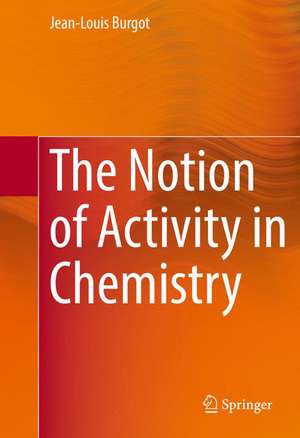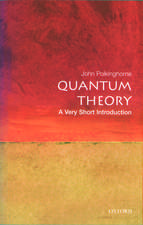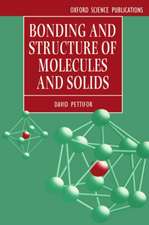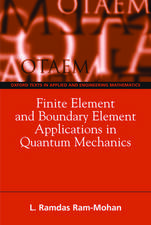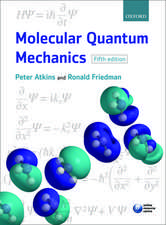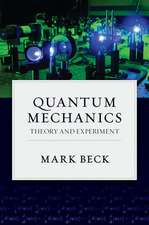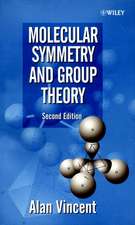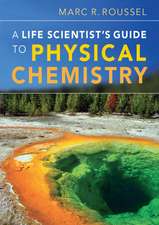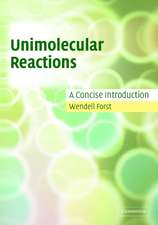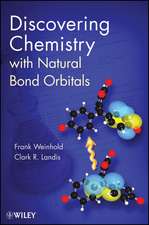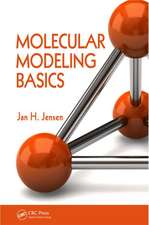The Notion of Activity in Chemistry
Autor Jean-Louis Burgoten Limba Engleză Hardback – 15 dec 2016
| Toate formatele și edițiile | Preț | Express |
|---|---|---|
| Paperback (1) | 1233.52 lei 6-8 săpt. | |
| Springer International Publishing – 29 apr 2018 | 1233.52 lei 6-8 săpt. | |
| Hardback (1) | 1239.85 lei 6-8 săpt. | |
| Springer International Publishing – 15 dec 2016 | 1239.85 lei 6-8 săpt. |
Preț: 1239.85 lei
Preț vechi: 1512.01 lei
-18% Nou
Puncte Express: 1860
Preț estimativ în valută:
237.27€ • 257.64$ • 199.31£
237.27€ • 257.64$ • 199.31£
Carte tipărită la comandă
Livrare economică 22 aprilie-06 mai
Preluare comenzi: 021 569.72.76
Specificații
ISBN-13: 9783319463995
ISBN-10: 3319463993
Pagini: 470
Ilustrații: XLI, 608 p. 51 illus.
Dimensiuni: 155 x 235 x 35 mm
Greutate: 1.08 kg
Ediția:1st ed. 2017
Editura: Springer International Publishing
Colecția Springer
Locul publicării:Cham, Switzerland
ISBN-10: 3319463993
Pagini: 470
Ilustrații: XLI, 608 p. 51 illus.
Dimensiuni: 155 x 235 x 35 mm
Greutate: 1.08 kg
Ediția:1st ed. 2017
Editura: Springer International Publishing
Colecția Springer
Locul publicării:Cham, Switzerland
Cuprins
1st part: The Activity in Classical Thermodynamics.- Thermodynamic systems.- Gibbs and Helmhotz energies.- Escaping tendency and molar Gibbs energy.- Partial molar properties.- Chemical potential or partial molar Gibbs energy.- An overview of the notion of activity.- The concept of fugacity.- Ideal solutions.- Definitions of the activity.- Activity of a gaz.- Activities of non- electrolytes in solutions.- Activities of electrolytes: definitions.- Determination of the activity of non-electrolytes.- Determination of the activity of electrolytes.- Debye and Hückel ‘s relations.- Excess Gibbs energies and activities.- Chemical equilibrium constants : activities and Gibbs energies of reactions.- Derivation of thermodynamic equilibrium constants- pH and its measure.- General principles of calculations of ionic species concentrations in solutions involving activities .- 2nd part: The Activity in Statistical Thermodynamics.- Statistical thermodynamics in brief.- Concept of ensembles and postulates.- The canonical ensemble: notion of distribution.- Thermodynamic quantities in the framework of the canonical ensemble.- Other ensembles .- Systems of molecules and subsystems independent distinguishable and “indistinguishable”.- Perfect gases.- Classical statistical mechanics- Notion of configuration – Classical canonical partition function.- The configurational partition function – Molecular distribution functions.- The radial distribution function.- Radial distribution function and thermodynamic quantities- calculations of the internal energy and of the pressure of a system.- Radial distribution function and calculation of the isothermal compressibility coefficient of a system.- The chemical potential and the radial distribution function: General formal introduction of the activity and of the activity coefficient.- Imperfect gases – The virial coefficients in terms of interaction potential energies.- A statistical expression of the activity: A relation between it and the concentration in the case of an imperfect gaz.- Activities of gases in a mixture of imperfect gases.- Chemical equilibria between gases and statistical thermodynamics.- Activity coefficients of gases.- Activities and concentrations of non-electrolytes in dilute liquid solutions – McMillan- Mayer’s theory of their osmotic pressure.- A study of dilute solutions of non-electrolytes at constant pressure and temperature.- The activity coefficients of solutes in binary non-electrolyte solutions.- Molecular distribution functions in binary mixtures.- The Kirkwood-Buff’s theory- Changes of chemical potentials of solutes with their concentrations at constant pressure and temperature.- Expressions of the chemical potentials of the components of ideal solutions of non-electrolytes.
Notă biografică
Jean-Louis Burgot is a retired Professor of analytical chemistry in Rennes, France.
Textul de pe ultima copertă
This book provides deep insight into the physical quantity known as chemical activity. The author probes deep into classical thermodynamics in Part I, and then into statistical thermodynamics in Part II, to provide the necessary background. The treatment has been streamlined by placing some background material in appendices. Chemical Activity is of interest not only to those in chemical thermodynamics, but also to chemical engineers working with mass transfer and its applications - for example, separation methods.
Caracteristici
Gives a new interpretation of chemical activity Includes twenty-eight appendices that break down and help solve equations Contained in appendices are a general mathematical background in the material, individual derivations, and calculations Provides supplemental information on a qualitative approach of the classical canonical partition function in phase space, pairwise additivity assumption, Kirkwood-Buff theory, and a discussion on classical and statistical thermodynamics Discusses classical and statistical thermodynamics with regard to the notion Includes supplementary material: sn.pub/extras
